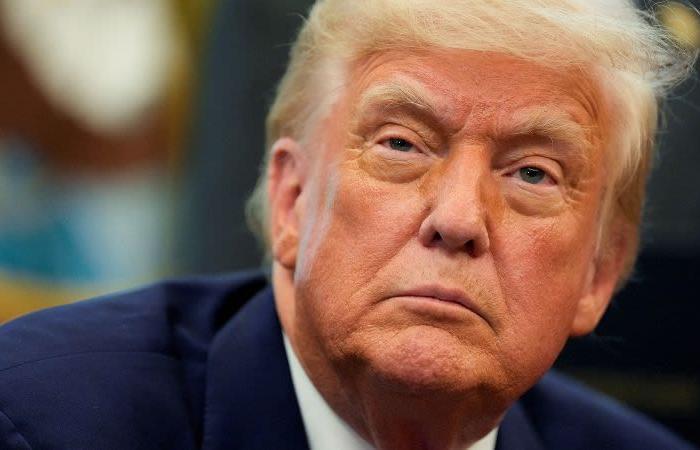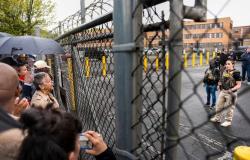CNN
—
President Donald Trump personally participated in conversations within the administration about the possible suspension of Habeas Corpus, a legal procedure that allows people to challenge their detention in court, as two people familiar with the issue informed CNN.
One of Trump’s main advisors, Stephen Miller, publicly confirmed this Friday that the administration was “actively considering” the suspension of habeas corpus, adding that “it depends on whether the courts do the right thing or not.”
Both private conversations and Miller’s public comments show that this option is being seriously considered within the west of the White House.
While Trump has not explicitly mentioned Habeas Corpus in public, it is what he referred to last month when he commented on the measures he could take to combat judicial orders nationwide against his actions in the field of deportations, according to one of the people familiar with the conversations.
“There are ways to mitigate it, and some are very forceful,” Trump told La Prensa on April 30. “There is a route that three very respected presidents have used, but we hope not to resort to it.”
It is not clear if the administration will really implement this measure, and experts claim that it will probably generate legal challenges. The White House declined to comment beyond Miller’s statement.
“Basically, everything Miller says about suspending Habeas Corpus, which would eliminate the ability of the courts to decide on immigration, is wrong,” said Elie Honig, a senior legal analyst of CNN and former federal exfiscal.
The Constitution clearly establishes that the suspension of habeas corpus should be reserved for cases of rebellion or invasion that represent the most serious threats for public security. And Congress has never approved a law that authorizes deportations without judicial intervention, as Miller suggests.
The Constitution only allows the suspension of habeas corpus when, in cases of rebellion or invasion, public security requires it.
Miller’s comments reflect the continuous efforts of the Trump administration for using the current situation of illegal border crossings to affirm that the United States is being invaded, which, according to the Administration, allows it to avoid the protections of due process granted to migrants. The administration presents an argument similar to defending the invocation by Trump of the Law of Foreign Enemies, which would allow the government to quickly deport migrants without complying with these procedures.
Several judges, including one designated by Trump, have rejected the invocation, arguing in their failures that the administration has not shown that the United States is being invaded by a hostile foreign power, as established in the law of the 18th century.
The Trump administration has also been examining the possibility of labeling some alleged cartels and gang members within the United States as “enemy fighters” as a possible way to stop them more easily and make it difficult to challenge their impugnate their imprisonment, CNN said previously.
Suspending the Habeas Corpus resource would lead Trump’s efforts even further, allowing the Trump administration to stop migrants without giving them the opportunity to challenge such detention, which would in essence allow the government to stop people without justification.
“The Habeas Corpus resource has been suspended several times, but only in times of real war or real invasion, strictly speaking,” CNN told CNN in January Ilya Somin, a law professor at the George Mason University.
Although the Constitution does not explicitly require the approval of the Congress for said suspension, it is long understood that the legislature would probably have to play that role, as the late conservative judge Antonin Scalia pointed out in a particular vote.
Somin said that some states have also tried to allege, since the 1990s, that illegal immigration was equivalent to an invasion that would allow them to participate in wars or ignore federal laws that restrict the application of immigration laws.
“Every time the courts have issued a sentence about this, they have failed against the states,” said Somin.
Trump administration officials have made it clear that they believe that the Judiciary is hindering their ability to enforce migratory laws. President Donald Trump has personally attacked judges in public statements, and Miller has compared judicial decisions against the administration with a “judicial coup.”
In a sample of the growing pressure, the president of the Supreme Court, John Roberts, highlighted the importance of judicial independence during his public statements on Wednesday.
“The Judiciary is a branch of the Government with the same power, independent of the others, with the authority to interpret the Constitution as law and, obviously, to cancel the laws of Congress or the laws of the president,” Roberts declared in an event in his native Buffalo, New York.
The function of the Judiciary, Roberts added, is “to decide cases, but, at the same time, control the excesses of the Congress or the Executive.”
This holder and article were updated with more details.






